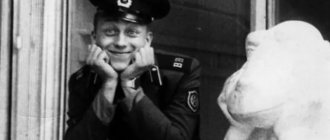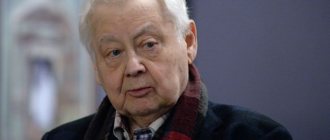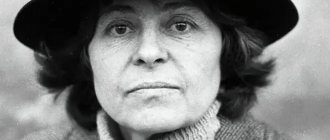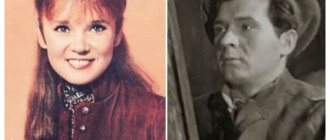Early films.
As a teenager, Polanski developed his acting skills in radio plays and films. In 1954, he entered the Polish National Film Academy in Lodz, where his main work consisted of short films and documentaries. After graduating from school, he starred in several films, including the famous Polish director Andrzej Wajda's "Flying" (1959), "The Innocent Sorcerers" (1960) and "Samson" (1961).
In 1962, he directed his first feature film, Knife in the Water. The international recognition that followed, including an Oscar nomination for Best Foreign Film, gave Polanski the opportunity to bring his films to a wider audience. The following year he moved to London, where his next film, the psychological thriller Repulsion (1965), was acclaimed by critics and audiences alike.
In 1968, Polanski moved to Hollywood, making his American film debut with the classic thriller Rosemary's Baby, starring Mia Farrow and John Cassavetes.
“There is no one to love!”
One Polish actress talked about her chance meeting with Polanski. It was the eighties. New Year, a noisy party where all the cream of Polish cinema gathered. The holiday is in full swing. Roman Polanski suddenly appears on the threshold of the hall. As in that song, “nobody called him, he just…” came. Roman looks around at the guests and says: “So, it’s clear, there’s no one to love (although the actress used a much stronger expression)!” He turns around and leaves. But, let me remind you, the cream of Polish cinema gathered there. Including the one with whom half of the men in the USSR were in love in those years. But Polanski didn’t need just beautiful ones: he chose ones that would drive you crazy. Infernal. Or fallen angels. Or Lolita with swollen lips.
Article on the topic 5 cult films of Roman Polanski
He found them exclusively on the set. It’s not for nothing that directors say: for a film to work, the director must be in love with the actress. Otherwise, there will be no chemistry that will be felt by the audience sitting in the hall. So Polanski fell in love. Sincerely. Every time. There were many times.
And the first happened at the very end of the fifties. His chosen one was Barbara Kwiatkowska , who played Polanski in the short film “When Angels Fall” (1959). She is 19, he is 26. Actually, Barbara was a dancer. A beautiful dancer. But a bad dancer is one who does not dream of becoming an actress. Barbara dreamed. And Polanski’s film was one of the first steps towards realizing this dream. She got the role of cleaning public toilets in her youth. The old cleaning lady was played by Polanski himself. The creative tandem smoothly flowed into the family one. They got married in 1959 and lived together for three years. We parted peacefully and did not throw furniture at each other. But somewhere deep down, Polanski made a note for himself: falling in love - oh yes! Living together is fine! But get married only if absolutely necessary.
Barbara Kwiatkowska in the film When Angels Fall. Still from the film
Relationships with minors.
In 1977, Polanski was charged with six criminal counts for having sex with a minor. The alleged act happened to a 13-year-old girl at Jack Nicholson's house. Both Nicholson and his longtime girlfriend, actress Anjelica Huston, testified against Polanski when the highly publicized case went to trial. Polanski pleaded guilty to one charge of unlawful sexual intercourse and underwent a six-week psychiatric evaluation in a California state prison. Although additional criminal charges have not yet been filed, Polanski fled the United States upon his release.
Emmanuelle Seigner, the director's third wife
In 1989, Polanski decided to try his luck for the third time. This time his chosen one was the actress and model of French origin Emmanuelle Seigner, 33 years younger than the director. The woman became for the genius both a fighting friend, a muse, and a homemaker.
Roman Polanski and Emmanuel Seigner
Return to cinema.
Polanski traveled throughout Europe and eventually settled in Paris, where he filmed Tess (1979), an adaptation of Thomas Hardy's Tess of the d'Urbervilles. Throughout the 1980s, he focused on stage acting, appearing in productions of Amadeus (1981) and Metamorphosis (1988).
Polanski returned to film work with the tense thriller Furious (1988), starring Harrison Ford and Betty Buckley, and then the erotic drama Bitter Moon (1992), starring Hugh Grant and Polanski's current wife, Emmanuelle Seigner. Both projects failed to impress critics, but Polanski reinvented himself in 1994 with Death and the Maiden, an adaptation of Ariel Dorfman's play. In 1999, Polanski directed the supernatural thriller The Ninth Gate, which starred Johnny Depp. The film's critical and commercial success was poor.
Polanski returned in 2002 with the critically acclaimed Holocaust drama The Pianist, which won the Palme d'Or at the Cannes Film Festival. Polanski unexpectedly won the Best Director Oscar for the film, but was barred from the awards ceremony due to his criminal conviction. The film's star, 29-year-old Adrien Brody, also won an Oscar for his role.
Following The Pianist, Polanski said he was looking forward to making a film that his children would enjoy. His next project was the film adaptation of Charles Dickens' classic novel Oliver Twist (2005), starring Ben Kingsley. Despite a strong cast, the film performed poorly at the box office and received lukewarm reviews from critics.
The 2010 release of the political thriller Specter, starring Pierce Brosnan and Ewan McGregor, marked the beginning of a fruitful decade for the director. It was followed by the dark comedy Carnage (2011), the erotic Venus in Fur (2013) and the psychological thriller Based on a True Story, the latter two starring Polanski's wife, Emmanuelle Seigner.
Life events
- In 1955, Roman starred with the famous Polish film director Andrzej Wajda in the film “Generation” . Under his patronage, Polanski became a student at the film school in Lodz, which he did not officially graduate from, but left in 1959. Not without reason, he decided that he had acquired enough knowledge and skills to work in cinema as an actor and director. But the directing attracted more.
- In 1958, while still a student, he received recognition by presenting the painting Two Men and a Wardrobe . The film was awarded a bronze medal at the Brussels World Fair, and in addition, four more international awards.
- In 1962, the debut took place on the wide screen. The first full-length film “Knife in the Water” - an absurdist thriller that had a modest release in its homeland, but was received with a bang overseas. In the USA, it was nominated for an Oscar and received this award in the “Best Foreign Film” section.
- From 1964 to 1968, Polanski settled in England, where the genre of the black gothic novel had long roots. Here he made the films “Repulsion” with K. Deneuve, “Dead End”. Both works received prizes at the Berlin Film Festival. During filming, Roman often assigned himself small acting roles.
- Next came a thickening of colors and black humor: “Vampire Ball” , “Fearless Vampire Hunters” . Not every viewer can withstand the heavy and gloomy atmosphere of comedies about vampires. On the set of the last of them, the director met American actress Sharon Tate, who became his wife.
- In 1968, Roman moved to America with her. The same year he made his Hollywood debut with the horror film Rosemary's Baby . The master of the noir genre became widely known. Success in cinema received a terrible refraction in his own life: in 1969, the director’s pregnant wife was killed.
- In 1969, under the influence of a personal tragedy, Polanski left Hollywood, and in 1974 he returned to make Chinatown , which won an Oscar and became the best film of the 70s in his personal filmography. The director's work in it was Fr.
- In the second half of the 70s, the director visited Europe and in 1976 in France he shot the film “The Tenant” - the last part of the trilogy, which previously included “Repulsion” and “Rosemary’s Baby” . He himself played the main role opposite Isabelle Adjani.
- In 1978, Polanski was forced to flee the United States, where a criminal case was brought against him on charges of raping underage fashion model Samantha Geimer. Before his escape, Roman Polanski visited a psychiatric clinic at a California prison. On the eve of his sentencing, he fled to England, then to France, moving later to Switzerland and Poland.
- The 1979 film Tess was filmed in northern France and is dedicated to the memory of his late wife Sharon Tate. The main role in it was played by the young German actress Natalia Kinski . Rumors leaked to the press about the director's affair with 15-year-old Kinski. In 1981, the film was awarded an Oscar for best director and also received a Cesar Award.
- In the 80-2000s, Roman Polanski finally settled in France, married French actress Emmanuelle Seigner and had two children. His wife is present in almost all the films made (“Furious”, “Bitter Moon”, “Venus in Fur”, “Based on a True Story”, “An Officer and a Spy”).
- In 1999, in the mystical thriller “The Ninth Gate”, together with E. Seigner, the director filmed their little daughter Morgan in a cameo scene at the airport. The star actor of the film was Johnny Depp, who played the main role.
- The theme of the Holocaust, which left a tragic mark on his personal fate and always lived in the thoughts of R. Polanski, was embodied in the historical film “The Pianist” (2002), dedicated to the real fate of pianist Wladyslaw Szpilman. For this film work, the author in 2002 received the main prize of the Cannes Film Festival - the Palme d'Or and an Oscar . Actor E. Brody also won an Oscar for the lead role.
- In 2009, Roman Polanski, who arrived at the Zurich Film Festival to receive an award for his directorial activities, was arrested by Swiss police at the request of US authorities. The 20-year-old charges against him under American law remained in force. The public, actors and cultural figures from many countries, and the French Minister of Culture stood up for the director.
- In 2010, while the film master was under arrest, his new film “Ghost” received the Silver Bear prize for best director at the Berlin Film Festival. After this, the authorities of Switzerland and then Poland found no grounds for detaining Polanski and handing him over to American authorities. The director was released.
- In the last decade, Roman Polanski's most significant film was the 2021 film An Officer and a Spy , which won two Cesar Awards for Best Director and Best Screenplay.
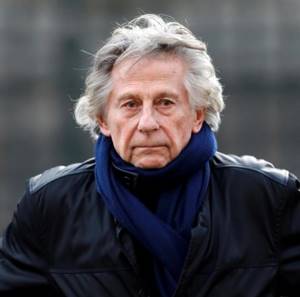
Roman Polanski in 2021
Legal problems.
In 2009, Polanski was on his way to receiving a lifetime achievement award at the Zurich Film Festival when he was arrested by Swiss police on a long-standing warrant for his sexual relationship with a 13-year-old girl in 1977. After a legal battle over his extradition, authorities ultimately rejected the US request. Polanski later received his award with the premiere of the documentary Roman Polanski: A Film Memoir at the festival in 2011.
Another US extradition request in 2015, this time to Poland, was also rejected.
In May 2021, the Academy of Motion Picture Arts and Sciences expelled the director due to their new ethical standards based on the #MeToo movement.
Patching holes. Soulful.
In the early sixties, Polanski moved from Poland to the West: there his films were understood and received with a bang. Unlike in his homeland, where at a special screening of Polanski’s film “Knife in the Water” (1962), the leader of the Polish Communist Party became extremely angry at the director’s perverted fantasy and threw an ashtray at the screen. And world cinema was delighted with “The Knife...”: the film was nominated for an Oscar as the best film in a foreign language. Polanski lives in France. In London he was filming another confusing picture with the telling title “Disgust” (1965). And he finds solace in the arms of Catherine Deneuve , who played the main role in Repulsion. For both of them, this novel was a kind of therapy, patching up spiritual holes. Catherine Deneuve licked her wounds after breaking up with Roger Vadim , Polanski after her divorce. Ideal option: no obligations, just walks around London, Soho bustling even at night, bars, clubs, bed. Deneuve later recalled that period with tenderness, saying that some kind of special connection was established between her and Polanski. That didn’t stop her from soon marrying a famous photographer. And Polanski...
Catherine Deneuve is 70 years old: 10 main roles of the famous actress | Photo gallery
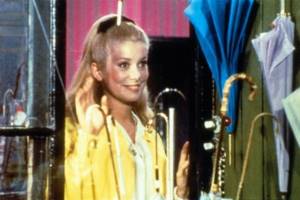
Deneuve gained wide fame after playing the leading role in Jacques Demy's musical melodrama The Umbrellas of Cherbourg, for which Michel Legrand wrote the music. Interestingly, the role of Genevieve Emery was originally supposed to go to Isabelle Aubray, singer, © Still from the film “The Umbrellas of Cherbourg”, 1964
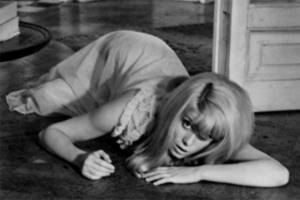
Deneuve's next prominent work was the role of Carole Ledoux in Roman Polanski's English-language debut, Repulsion. This picture became one of the director’s most significant works, and the film itself was awarded two awards at the Berlin Film Festival. © Still from the film “Repulsion”, 1965
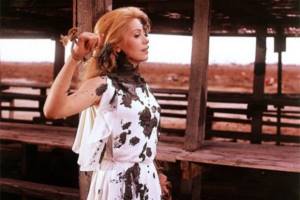
In 1967, Catherine Deneuve played the bold role of Séverine Cerisy in Luis Buñuel's drama Belle of the Day, based on the revealing novel by Joseph Kessel. The film received rave reviews from critics and the Golden Lion Award in Venice. The actress herself was nom © Still from the film “Beauty of the Day”, 1967
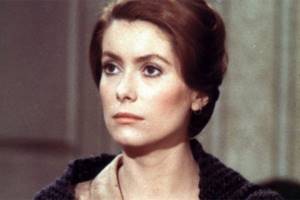
In 1970, Catherine Deneuve starred in another film by Luis Buñuel, Tristan, which was nominated for an Oscar. This role cemented Deneuve as a leading actress in France. © Still from the film “Tristana”, 1970
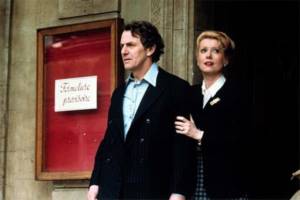
Catherine Deneuve received her first award for her role in the historical drama by François Truffaut “The Last Metro” - this picture became the director’s most successful film. For the role of Marion Steiner, Deneuve received the Cesar Award and the David di Donatello Award, and “The Last Metro” © Still from the film “The Last Metro”, 1980
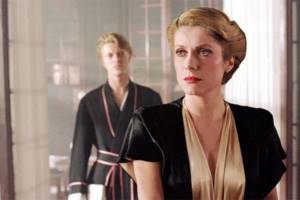
The actress gained fame in the United States after Tony Scott's horror film The Hunger, where she played one of the main roles - the vampire Miriam Blaylock. The film also stars Susan Sarandon and famous musician David Bowie. The film was nominated for the Saturn Award and © Still from the film “Hunger”, 1983
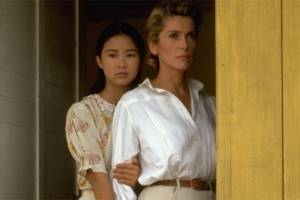
In 1992, Catherine Deneuve starred in the leading role in Regis Warnier's drama Indochina. The film collected a large number of awards, including an Oscar in the category “Best Foreign Language Film”, and Deneuve was awarded the Cesar Award for Best Actress for her performance © Still from the film “Indochina”, 1992
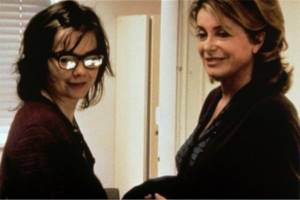
In 2000, Catherine Deneuve, together with the famous artist Björk, played in Lars von Trier's tragicomedy Dancer in the Dark, which became the last film in the trilogy that began with Breaking the Waves and The Idiots. The film received two awards at the Cannes Film Festival © Still from the film “Dancer in the Dark”, 2000
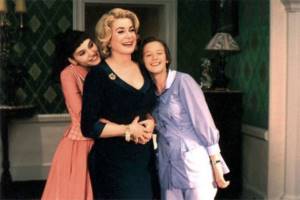
Catherine Deneuve, along with other French film stars Isabelle Huppert and Fanny Ardant, formed a vibrant ensemble in Francois Ozon's comedy vaudeville "8 Women", based on the 1961 play "8 Women in Love" by Robert Thomas. A special emphasis in the film was with © Still from the film “8 Women”, 2002
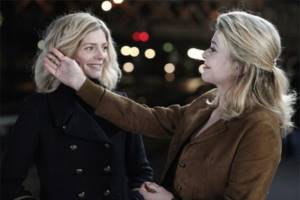
In 2011, Catherine Deneuve, together with her daughter Chiara Mastroianni, played the main roles in the musical drama “Beloved” by Christophe Honoré. Interestingly, in the story, the characters Deneuve and Mastroianni were also mother and daughter. © Still from the film “Beloved”, 2011
Polanski, Roman
Origin Roman Polanski was born in Paris into a family of Polish Jews. His real name is Raymond Roman Thierry Liebling, but his father insisted that his first name be changed to Roman and his last name to Polanski. In 1939, shortly before World War II, they moved to Krakow, Poland, and soon found themselves in a ghetto. 8-year-old Roman miraculously managed to escape Auschwitz, where his mother died. My father was deported to a concentration camp in Mauthausen, but managed to survive there. Hiding from the Nazis, Roman ended up in the village of Vysoka, where he spent several weeks. He then returned to Krakow, and after the end of the war he was found first by his uncle and then by his father. Actor After the war, Polanski planned to connect his future with cycling and trained a lot. In 1946, he went on an excursion to a radio studio, where he was noticed by the author of the program “The Cheerful Son of the Regiment” (Syn pułku) at the Theater for Young Spectators, which was directed by Blizanka. Soon new roles and a reputation as a talented actor appeared. In 1953, director and teacher Antoni Bochdzewicz saw Polanski on stage and offered him a role in the film “Three Stories” (Trzy opowieści). In 1959 he graduated from the Higher School of Cinema, Television and Theater in Lodz (during his studies he made eight short films). In 1955, Polish director Andrzej Wajda invited him to play in his debut film “Generation” (Pokolenie). In total, Polanski played more than 30 film roles. Directing Polanski made his first feature film, Knife in the Water, in Poland in 1962, and it began his international career as a director. The film, demonstrating the director's ability to understand the complex psychological nuances of human relationships, was noticed not only in Poland, but throughout the world. It was nominated for an Oscar for Best Foreign Film and won a prize at the Venice Film Festival. After filming, Polanski went to France, and in 1962 to England, where he lived until 1968 and shot the psychological thrillers “Repulsion” (1965) and “Dead End” (1966), which received the “Silver Bear” and “Golden Bear” "at the Berlin Film Festival. In 1968, after marrying American actress Sharon Tate, whom he met in 1967 on the set of his first color film, Ball of the Vampires, Polanski moved to the United States. In the same year, the film “Rosemary's Baby” was released in Hollywood, which is still considered one of the best mystical films in the history of cinema. Mia Farrow played the main role in the film. In 1969, Sharon Tate, while pregnant, was killed by members of the Charles Manson gang. This tragedy greatly influenced all of Polanski's subsequent work. After the arrest of the killer, he moved to Rome. In 1973 he returned to the USA. In 1974, he directed a film based on Robert Towne's script, Chinatown, in which Jack Nicholson and Faye Dunaway played the leading roles. The film won a Golden Globe for directing and in 1975 was nominated for an Oscar in 11 nominations, but received a prize in only one - “best original screenplay” (it was beaten in almost all categories by The Godfather 2). In 1978, Polanski left the United States and settled in France, where he continued his career as a film director. A notable event of this period was the film “Tess” (1979), which he dedicated to his murdered wife. In 1989 he married the French actress and model Emmanuelle Seigner. She played roles in four of his films - Furious (1988), Bitter Moon (1992), The Ninth Gate (1999, starring Johnny Depp) and Venus in Fur (2013). In 1997, a musical based on his film “Dance of the Vampires” was staged in Vienna, which brought the author enormous success. In 2002, Polanski turned to the topic of the Holocaust. He directed the film “The Pianist” (based on the book of memoirs of the Polish Jew Wladyslaw Szpilman), which received more than 30 prizes, including three Oscars, the Palme d’Or at the Cannes Film Festival and the British Academy Film Prize. In 2010, the European Film Academy named him best director and screenwriter, Phantom was named best film, and the Berlin Film Festival awarded him the Silver Bear for directing. In 2011, Phantom was awarded the French Cesar Award for direction, adapted screenplay, editing and music. In 2011, at the Zurich Film Festival (Switzerland), he was awarded the “For Contribution to World Cinema” award, awarded back in 2009. The director was unable to receive it then, since in September 2009 he was detained in the same city for based on an arrest warrant issued by the US judicial authorities on charges of illicit relations with a minor. At the end of 2021, filming began on a new film, which will be called “Based on a True Story.” It is based on a novel by the French writer Delphine de Vigan. The main role is played by Eva Green. In total, Polanski made more than 20 films. Trial In 1977, Polanski was accused of raping thirteen-year-old fashion model Samantha Geimer (at that time her last name was Gailey) at the home of the famous actor Jack Nicholson in Los Angeles. Gamer, whom Polanski allegedly invited to shoot for the French edition of Vogue, said that the director gave her champagne and convinced her to take the drug Quaalude, after which he forced her to have sex. Then Polanski pleaded guilty to having sexual relations with a minor and entered into an agreement with the investigation to receive the most lenient sentence possible. Before sentencing, and as part of an agreement between prosecutors and defense attorneys, director Polanski agreed to undergo three months of psychiatric evaluation at the Chino Prison Hospital in California. Upon his return from prison, the judge hearing his case informed him that he had changed his position and did not intend to agree with the prosecutor's recommendation that Polanski be given a suspended sentence without imprisonment. This was a violation of the agreement reached by the director’s lawyers with the prosecutor’s office. On February 1, 1978, just before the verdict was announced, Polanski left the United States. First he moved to the UK, then lived in France, Switzerland and Poland. Subsequently, other accusations against Polanski appeared in the press. For example, British actress Charlotte Lewis stated that the director forcibly seized her in a Parisian house during the filming of the film “Pirates” in 1982, when she was 16 years old, but no criminal case was opened after the actress’s words. In September 2009, Roman Polanski arrived in Switzerland to receive an award for his directorial work and was arrested by police on September 26 on a US warrant dating back to 1978 and an international arrest warrant from 2005. Because Polanski admitted guilt and fled from trial, according to American laws, the principle of limitation does not apply to him. On December 3, 2009, he was released on bail of 5 million francs and placed under house arrest in his home in the village of Gstaad (Switzerland) pending an extradition hearing to the United States. A number of famous directors and artists opposed the transfer of Polanski to the American side. Among them were Woody Allen, David Lynch, Martin Scorsese, Wim Wenders, Darren Aronofsky, Terry Gilliam, Pedro Almodóvar, Fanny Ardant and Monica Bellucci. In May 2010, Roman Polanski, awaiting extradition to the United States, issued a statement (a letter entitled “I can no longer remain silent” was posted on the website of the magazine La Regle du Jeu). Polanski was confident that prosecutor Steve Cooley was not driven by legal motives. The 76-year-old director said: “I can no longer remain silent because the extradition request is based on lies. "The American authorities continue to demand my deportation, rather in order to hand me over to journalists around the world than to reach a verdict in a case that was agreed upon 33 years ago." Polanski also believed that the judge in Los Angeles was violating agreements reached with his lawyer, and also suggested that the prosecutor was working for the public in an attempt to secure victory in the upcoming elections. Official Bern asked the US authorities to pardon the director, but California Governor Arnold Schwarzenegger refused to do so. In July 2010, Switzerland officially refused to hand over Polanski to the United States, deeming the extradition request unsatisfactory. In October 2014, the United States asked Poland to arrest a film director who arrived in the country to participate in the opening of the permanent exhibition of the Museum of the History of Polish Jews. The case was sent to the Polish court on January 20, 2015. In October 2015, the Krakow court also refused to extradite Roman Polanski at the request of the United States, calling the extradition an unlawful deprivation of liberty. Afterwards, the Polish Prosecutor General Zbigniew Žebro appealed this decision. In December 2021, the Polish Supreme Court ruled that the US refusal to extradite Polanski was legal. This is the last resort in Polish justice, which means that he will definitely not be extradited from the territory of this country to the United States. Years later, Geimer herself asked the Los Angeles court to dismiss the case, but was refused. On April 4, 2021, a court in Los Angeles refused to settle a rape case against director Roman Polanski, arguing that the director was still a fugitive from American justice and had not appeared in person before an American court. The judge also said that the filmmaker should be imprisoned for 50 years. Polanski's legal team previously petitioned a US court to settle the case. In August 2020, a Los Angeles court decided that Polanski would not be reinstated into the Academy of Motion Picture Arts and Sciences, which awards the Oscar, from which he was expelled on May 1, 2021. Family The director currently has dual citizenship - France and Poland . Since 1989, he has been married for the third time to Emmanuelle Seigner. The first wife (1959-1962) was Barbara Kwiatkowska-Lass, the second (1968-1969) was Sharon Tate (killed in 1969). Has two children from his third marriage - daughter Morgana (1993) and son Elvis (1998).
Scandals involving Roman Polanski
In 1977, Roman Polanski was accused of raping 13-year-old American Samantha Geimer and was arrested on charges. Polanski partially admitted his guilt, after which he fled the United States to France. Since then, the director has not traveled to the United States. He also did not travel to countries where extradition to the United States exists; even for filming films, copies of the places in question were created (for example, Stonehenge in Tess). Roman Polanski's therapy with Russian translation But still, in 2009, the director was arrested for warrant dating back to 1978, when he visited Switzerland to attend an awards ceremony. An extensive campaign was launched in support of the director; the appeal was signed by many actors and directors from all over the world. Diplomatic representatives of France and Poland also contacted the US leadership, but they refused to close the Polanski case. The director remained under house arrest until July 2010, when Swiss authorities refused to extradite him to the United States.
Polanski in France
Since 1976, Polanski has regularly made films in France. The film “The Tenant,” based on the novel by Roland Topor, became the final film in the director’s “apartment trilogy.” Polansky played the main role in this film. This absurdist tragicomic film was nominated for the Palme d'Or in 1976.
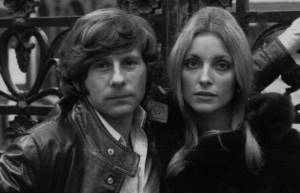
Roman Polanski and Sharon Tate Having moved permanently to Europe, Polanski filmed the classic novel by English writer Thomas Hardy, Tess of the D'Urbervilles. The film, dedicated to Polanski's late wife Sharon Tate, was released in 1979 under the title Tess, starring Nastassja Kinski. Film critics for cinematography, two Golden Globes, the French Cesar film award and the British Academy Film Award.
Also in 1979, Roman Polanski took French citizenship; became a member of the French Academy of Fine Arts.
In the eighties, the director worked mainly in the areas of advertising and television business. He also took part in work on theatrical productions.
In 1988, Polanski directed another thriller, Furious, starring Harrison Ford. The music for the film was written by Enio Morricone. Polanski gave one of the roles in the film to the French actress Emmanuelle Seigner, who became his wife in 1989.
The director’s next notable work was the film “The Ninth Gate,” a mystical thriller based on A. P. Reverte’s “The Dumas Club or the Shadow of Richelieu,” with Johnny Depp in the title role. The main female role in the film was played by the director's wife.
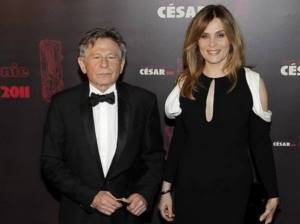
Roman Polanski and Emmanuelle Seigner 2002 was marked by such a film event as the premiere of the film “The Pianist,” based on the autobiography of one of the best pianists in Poland in the 30s, Wladyslaw Szpilman. In the film, Polanski raises a sore subject for himself – the Holocaust. The main role in the film was played by Adrien Brody. This film was praised by critics more generously than Polanski's other works. The film received 3 Oscar awards - for best actor, screenplay and director. The work was also praised by academics of British cinema - the best film. Seven French Cesar Awards. And - Palme d'Or at the Cannes Film Festival, 2002.
In recent years, Roman Polanski has filmed Charles Dickens' Oliver Twist (2005), directed the political thriller Phantom (2010, starring Ewan McGregor and Pierce Brosnan), which collected all the Euro-Oscars, and directed the tragicomedy Massacre ( 2011, starring roles J. Foster, K. Winslet, Kr. Waltz, J. Reilly), received the Golden Lion in Venice, 2 Golden Globes.
